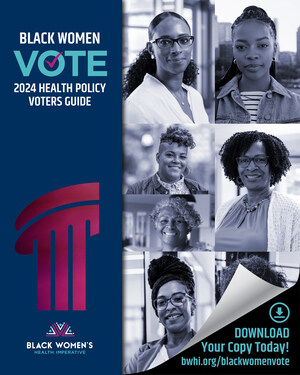WASHINGTON, Jan. 8, 2025 /PRNewswire/ -- The Rare Disease Diversity Coalition (RDDC) has released a new white paper, Health Equity for People Living with PNH: Creating a Level Playing Field, offering critical insights and recommendations to improve care equity and accessibility for individuals living with Paroxysmal Nocturnal Hemoglobinuria (PNH), an ultra-rare blood disorder.
PNH, which affects only 0.5 to 1.5 people per million, poses significant challenges for timely diagnosis, specialized care, and effective treatment due to its rarity. These barriers are further compounded by existing healthcare disparities for minority and marginalized communities, including Black and Indigenous People of Color (BIPOC), LGBTQIA+ individuals, rural residents, immigrants, and those with limited English proficiency or incomes below the federal poverty level.
The report, developed by the PNH Health Equity Steering Committee—a collaboration of patient advocates, healthcare professionals, caregivers, and stakeholders—examines systemic inequities that create disparities throughout the care journey. By building an understanding of diagnosis, financial strain, and access to care, the report provides a clear pathway to building more equitable care models and the roles of healthcare providers, pharmaceutical companies, insurers, patient advocacy organizations, and policymakers.
Key Findings and Recommendations from the Report
The white paper identifies significant barriers to care for people living with PNH and proposes targeted solutions to address these inequities:
- Enhancing the patient and caregiver experience by prioritizing shared decision-making and personalized care.
- Improving access to FDA-approved treatments to ensure patients receive the best available care while expanding provider access to necessary specialists.
- Reducing financial barriers that prevent many from accessing essential services through partnerships with stakeholders across care settings as well as pharmaceutical companies and non-profit organizations.
- Integrating cultural competency and gender diversity in care to meet the needs of diverse patient populations and create an inclusive care approach to reduce the potential for bias.
- Expanding telehealth services to overcome geographical and logistical hurdles, paired with increased mobile clinics and Internet access subsidies.
- Promoting diversity in clinical research to improve outcomes for underrepresented groups, including methods to engage more communities in clinical trial design.
- Focusing on quality-of-life metrics to help patients tackle symptoms such as severe pain and persistent fatigue, which can have compounding impacts on daily life.
"These recommendations aim to eliminate disparities and create a more equitable healthcare landscape for all PNH patients," said Jenifer Waldrop, Executive Director, RDDC. "By addressing socioeconomic, systemic, and geographical barriers, we can make meaningful progress toward health equity for PNH patients and the rare disease community as a whole. We believe this work can help us better understand and address the challenges people face with rare diseases, many of which start before a diagnosis is found."
The Path Forward
The RDDC envisions a future where every patient—regardless of race, ethnicity, gender, income, or location—can access timely, effective, and compassionate care. This report lays the groundwork for actionable steps to achieve that vision and serves as a call to action for stakeholders across the healthcare system. Every patient, doctor, healthcare setting, and partner has a role to play in improving care for those with PNH and other ultra-rare diseases.
For more information or to download the full report, click here.
Media Contact:
Monique Jackson
[email protected]
About the Black Women's Health Imperative (BWHI)
BWHI is a national non-profit organization dedicated to advancing health equity and social justice for Black women across the lifespan through policy, advocacy, education, research, and leadership development. The organization identifies the most pressing health issues that affect the nation's 22 million Black women and girls and invests in the best strategies and organizations to accomplish its goals. You can find more information about BWHI at bwhi.org.
The Rare Disease Diversity Coalition TM (RDDC)
RDDC is an initiative launched by BWHI to address the extraordinary challenges faced by historically underrepresented populations with rare diseases. RDDC brings together rare disease experts, health and diversity advocates, and industry leaders to identify and advocate for evidence-based solutions to reduce racial disparities in the rare disease community. Learn more at rarediseasediversity.org.
About Links2Equity
Links2Equity is a mission-driven patient advocacy consulting firm that gives patients and families, advocacy professionals, and other healthcare stakeholders a voice. With over twenty-five years of experience in patient advocacy and government affairs, Links2Equity aims to empower healthcare stakeholders to shape a more equitable healthcare system. The firm provides strategic consulting services to support patient advocacy and health equity efforts for all disease states and underrepresented communities. By uniting healthcare stakeholders and underrepresented patient populations, Links2Equity builds strong relationships and fosters collaborative dialogue to deliver a better patient experience and minimize health disparities.
Learn more at Links2Equity.com.
SOURCE Black Women's Health Imperative

WANT YOUR COMPANY'S NEWS FEATURED ON PRNEWSWIRE.COM?
Newsrooms &
Influencers
Digital Media
Outlets
Journalists
Opted In






Share this article